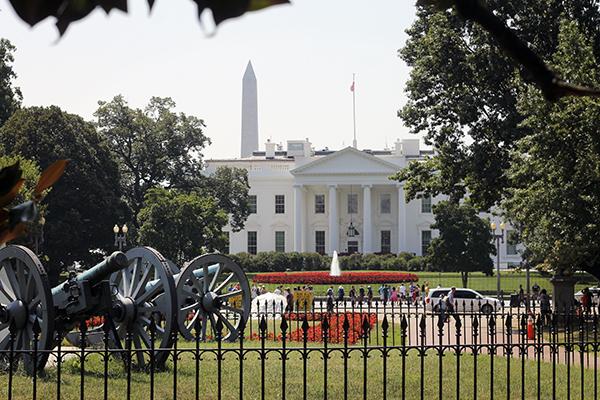Presidential candidates can’t be expected to know everything.
When it comes to crafting policy proposals, candidates on both sides of the political spectrum have been calling on faculty at GW to help determine what to do once they’ve reached the White House.
At least two GW faculty members have helped at least five different current presidential campaigns draft policy proposals, offering expert advice to the staff of candidates who may not be well-versed in areas like student debt and international affairs.
Sandy Baum, a research professor at the Graduate School of Education and Human Development, consulted on Hillary Clinton’s higher education policy plan. Clinton’s plan, revealed earlier this month, aims to keep students from having to take out loans to attend a public institution in-state by getting states to commit to limiting higher education funding cuts or tuition increases in exchange for grant money.
Baum, whose work on higher education affordability is some of the more highly publicized work in the field, said she also consulted for staff on other presidential campaigns, but declined to share the names of those campaigns.
“To me, it’s really exciting,” Baum said. “I feel like I have spent my life in academia and the whole point is to influence public policy. So to have some influence over what candidates say and what actually happens, and I have had interactions with a lot of policy makers in the past, I think it’s a really important experience.”
Baum is also a member of University President Steven Knapp’s task force on college access and success, which finds ways to help bring more low-income and minority students to GW and to help those students succeed. The group proposed a change that made national headlines this summer, when GW went test-optional.
Baum said that she discussed her own research and different agendas with Clinton staffers, and said she believes that the Clinton campaign was able to string together a series of strong ideas in its proposal.
Henry Nau, a professor of political science and international affairs, worked in the White House under President Ronald Reagan more than two decades ago. Nau has remained a popular figure for those working on campaigns to reach out to — so far, he has offered words of wisdom to the campaigns of governors Scott Walker and Bobby Jindal and former governors Mike Huckabee and Jim Gilmore.
Nau said that he has generally worked long-distance with the 2016 campaigns, taking answering staff members’ questions and advising on Middle East policy.
And while Nau has been in touch with staffers to share his thoughts, he said campaigns can include hundreds of people who aren’t as involved with the candidate but are hoping to get a leg up in the chaotic and competitive political world.
“They have been in touch with me to react to things they’re writing, things they’re thinking, but I can’t be really sure how connected they are to the candidate,” Nau said.
Nau said he has met with Gilmore twice over the past six months to discuss foreign policy, and is supposed to meet with Walker, although they don’t have a formal meeting scheduled.
“What I’m interested in doing is simply getting my ideas out there,” he said.
Nau and Baum are not the only faculty to be involved in presidential campaigns. Stephen Biddle and Marc Lynch in the political science department have served as consultants for members of President Obama’s administration.
Huma Abedin, known as Clinton’s right-hand woman on the campaign trail, also studied at GW and started interning for the First Lady while she a student at GW in the 1990s. And Lorraine Voles, the vice president for external relations, advised Clinton during the then-senator’s bid for reelection in New York and during the 2008 presidential campaign.







